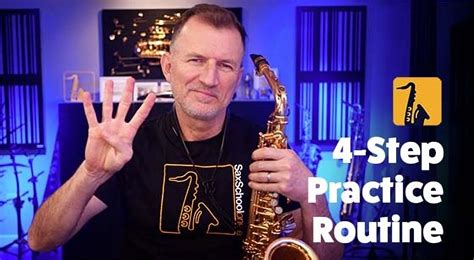Saxophone Practice: How Much Is Enough?
The question of how much to practice the saxophone is a common one, echoing through practice rooms worldwide. There's no magic number that guarantees overnight virtuosity, but understanding effective practice habits is far more crucial than simply accumulating hours. This article explores the ideal practice approach, addressing common questions and concerns about maximizing your practice time.
How Many Hours a Day Should I Practice Saxophone?
The "how many hours" question is deceptively simple. The optimal practice duration isn't dictated by a specific timeframe, but rather by your individual goals, current skill level, and the type of practice you're undertaking. A beginner might find 30 minutes to an hour of focused practice highly beneficial, whereas an advanced player aiming for a performance might dedicate several hours daily. Quality always trumps quantity. A half-hour of intensely focused, efficient practice will yield better results than two hours of distracted, unfocused playing.
What is Effective Saxophone Practice?
Effective practice isn't about mindlessly repeating scales for hours. It involves a structured approach incorporating various elements:
- Warm-up: Begin each session with a warm-up to prepare your embouchure and fingers. Simple long tones, scales, and arpeggios are excellent for this.
- Technical Exercises: Dedicate time to exercises that improve your technique. This includes scales, arpeggios, chromatic scales, and other finger exercises targeting specific challenges.
- Repertoire: Regularly practice the pieces you're learning, focusing on challenging passages and phrasing. Break down complex sections into smaller, manageable segments.
- Improvisation: Improvising helps develop musicality, creativity, and ear training. Even short, focused improvisation sessions can be beneficial.
- Listening: Actively listen to recordings of professional saxophonists to improve your ear and learn different styles.
- Rest: Taking breaks during your practice sessions is essential to prevent fatigue and maintain focus. Short breaks every 20-30 minutes can significantly improve your overall practice efficiency.
How Long Does it Take to Become Good at Saxophone?
There’s no single answer. Progress depends heavily on individual dedication, natural aptitude, teaching quality, and practice efficiency. Some individuals might show noticeable progress in a few months, while others may take years to achieve a similar level. Consistency and a well-structured practice routine are key determinants of success.
Is it Better to Practice More Frequently or for Longer Sessions?
More frequent, shorter practice sessions are generally preferred over infrequent, long sessions. Practicing daily, even for 30 minutes, is more effective than a marathon three-hour session once a week. This approach helps build muscle memory, maintain consistency, and prevents burnout.
Can I Over-Practice Saxophone?
Yes, over-practicing can lead to injury, burnout, and decreased performance. Pay close attention to your body. If you experience pain or fatigue, stop practicing and rest. It’s always better to err on the side of caution.
How Can I Make Saxophone Practice More Enjoyable?
Finding ways to enjoy your practice time will significantly impact your consistency and progress. Try these tips:
- Set achievable goals: Break down large goals into smaller, manageable steps.
- Vary your practice routine: Incorporate different types of exercises and pieces to keep things interesting.
- Practice with others: Playing with friends or joining a band can be a fun and motivating way to practice.
- Listen to music you enjoy: Listening to saxophone music can inspire and motivate you to practice.
In conclusion, the "how much" question regarding saxophone practice is ultimately a personal one. Focus on consistent, quality practice sessions tailored to your individual needs and skill level. A structured, enjoyable approach that incorporates a range of practice elements will lead to faster, more sustainable progress. Remember that consistent effort and a smart practice plan are far more effective than simply accumulating hours.

